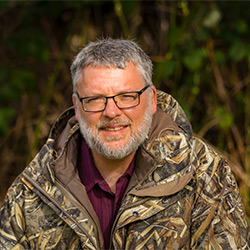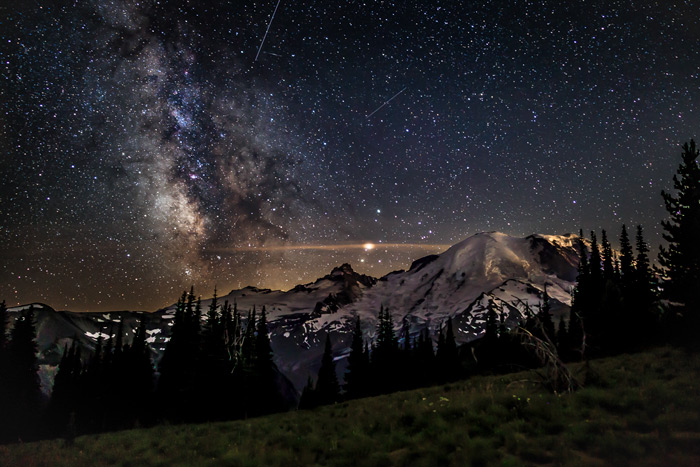 I’m excited to share an interview with the very talented Photographer Tim Davis. Tim is a full-time Microbiologist and photographer living in the beautiful state of Washington. Inspiration for Tim’s creative photographs comes from wildlife, landscape, and the stars. Tim’s body of work is quite diverse and his passion for photography speaks for itself.
I’m excited to share an interview with the very talented Photographer Tim Davis. Tim is a full-time Microbiologist and photographer living in the beautiful state of Washington. Inspiration for Tim’s creative photographs comes from wildlife, landscape, and the stars. Tim’s body of work is quite diverse and his passion for photography speaks for itself.
Tim, thank you for allowing us to learn about your love for photography and for allowing us to get to know a bit about you. You are a brilliant photographer and someone whose work is definitely worth following.
If you would like to see more of Tim’s work, you can visit his website. You can also follow him on Twitter.
Can you please tell the readers about yourself?
I’m a full-time microbiologist working at the Washington State Newborn Screening Laboratory. I’m also married with three daughters and when I’m not testing for metabolic disorders in newborns I’m out photographing wildlife, landscapes, and the stars. Any excuse I can find to get out and shoot, I’m there.
Where do you call home?
Washington State, USA, has been the place I’ve called home my entire life. This beautiful state is divided by the Cascade Mountain range and I was born and raised on the eastern side. Eastern Washington is a drier climate than the western side and is home to the world’s largest apple crop, abundant grape vineyards and wineries, hops, and wheat farms. I had the good fortune to spend my college days Bellingham on the western side and I now live near Seattle in the City of Lynnwood.
When did you first become interested in photography and how long have you been involved with it?
It was high school in the 80s (film days) when I first became interested, however, it wasn’t until 2015 when I got serious and took the plunge into professional photography.
Are you formally taught or self-taught?
I’ve learned most of what I know through YouTube videos. I’ve found that when you have a passion for something I become a sponge and learn fairly quickly. I’ve spent countless hours reviewing technology, learning theory, sharpening my skills, and studying how to properly process images. It’s an abundant and invaluable resource. Although beware that some reviewers are actually paid by the manufacturer to promote their product. I take the “chew the meat and spit out the bones” approach.
Are you satisfied with your choice of getting involved with this industry? Is there anything else you’d rather be doing?
While my industry involvement has not been extensive, I’m very satisfied with my choice to publically display and promote my work. Having photography as a secondary career is a good idea because financial success is not a guarantee especially in today’s competitive market.
What type of photography shoots do you look forward to?
I look forward to any photography when I know there’s a good chance that something unique will happen. This is where wildlife really becomes special. It’s impossible to predict what they will do or what setting you’ll find them in. Beautiful landscapes here in Washington State are also something that I hunger for.
When shooting subjects what do you find the most challenging?
The challenge in most photography is formulating the right frame or composition. Equally important is lighting. I rarely shoot when the sky is flat and gray for the simple fact that colors fade and the images are soft.
How do you keep your photography fresh and how do you stay motivated to keep on learning?
I take the approach that my best photo is yet to be taken which motivates me to strive for perfection. I also spend a lot of time critically observing other photographer’s work and learning from it. I’ve found that when I compete against my previous work it makes a rewarding benchmark.
What’s the best part of being a photographer?
Fulfillment comes from the creative process of the artistic expression and all that is involved with it. Thoughtful planning always reaps better rewards then just heading out and shooting and in the end, your work is yours.
Share with us your favorite image and why.
My favorite image is my Mount Rainier Milky Way shot. For a single 20 second image, this has been my best astrophotography capture. The hike in the dark, the sounds in the dark landscape, and the cool breeze are very vivid in my mind. One of my first loves is astrophotography and night photography for the simple fact that the sensor sees more than the human eye which increases your ability to be creative.

Do you visit any photography related websites or blogs and if so, which ones?
As I’ve mentioned before most of the knowledge that I’ve gained in photography has been from YouTube. Specifically, I’m a fan of Anthony Morganti and Tony Northrup.
What is one piece of advice you would like to offer a new photographer just starting out? Never stop learning. If you keep thinking this way then you’ll always strive to improve your work. Also, take your time and don’t try and rush success because if you do chances are you will be disappointed. Compete against yourself!
What type of camera do you shoot with and what is your favorite lens?
Love my Canon 6D. As an introductory camera to semi-professional work, it has met all my needs. Great low light performance, the image quality is excellent, and it works well with sports and wildlife.
What is your favorite photography accessory?
Alarm clock!
Do you plan on purchasing any new equipment and if so, what are you on the lookout for?
Hoping to purchase the Canon 7D Mark III when it is eventually released. Planning on taking advantage of the new crop sensor, burst rate, and focusing system for wildlife shooting.
How important is Photoshop or other image editing software in your final image?
I believe that the first half of photography happens when the shutter is pressed and the second is done on the computer. My typical workflow is starting Lightroom then moving the final images into Photoshop for the finishing edits. I then will migrate the photo back into Lightroom before publishing.
Can you tell me about one of your most memorable photo shoots? What made it so great and why did you like it so much?
A few years ago I spent a week camping on Mount Rainier here in Washington State. The landscapes and wildlife are spectacular and it was nice to be able to randomly explore with my camera. Since then, I’ve turned it into an annual event.
Do you have any projects that make you look back and shake your head? What made the experience so unpleasant?
Actually, I haven’t. Maybe that’s the eternal optimist in me but I always find that I gain something even when the circumstances aren’t the best.
Are there any areas of photography that you have yet to pick up on that you’d like to learn?
I’ve dabbled in portrait photography and find it to be very rewarding. Learning how to bring the best out of your subject is something that I need to learn more about. Another area that I’d like to explore is deep space astrophotography. Nebula photography has always fascinated me and I love the technical challenges that it presents.
What do you think the future holds for you?
Where do you see yourself in the next few years? I will continue to develop my skills and hope to eventually move my photography business to the next level. My goal is to strive to find contentment so that is where I hope to be.
Leave a Reply